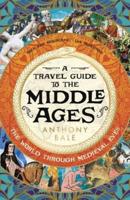Publisher's Synopsis
Between 1525 and 1640 England faced the usual human tragedies of war, epidemic, and food shortages, and the unusual strains of dynastic crises, religious revolutions, and the novelty of constant inflation. The efficiency of government and the cohesion of society were severely tested but, with occasional disruptions, they were sustained. Unlike many of their neighbours, the English were not `an ungovernable people' - until the 1640s, that is.
Public obedience was widespread, but stresses in this hierarchical society could sometimes undermine order. Dissent could take minor forms or, occasionally, spill over into riots, even rebellions - but they were contained. Popular rebellions did not usually seek to overthrow rulers, but rather to advise them, within a framework of deference and loyalty. In changing times, against the odds, society did not fracture.
Using evidence from a range of local archives and reinterpreting published work, this book offers new insights on power and people in early-modern English society.








